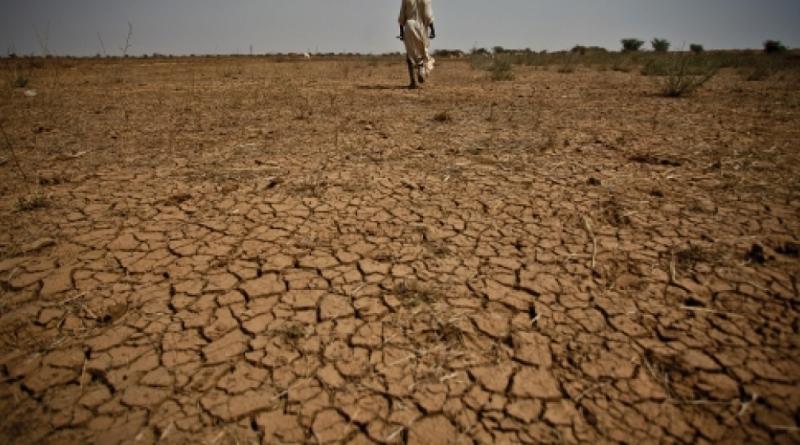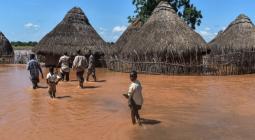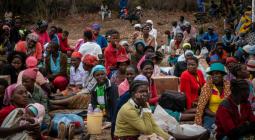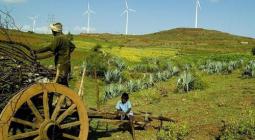Africa at risk.

African nations are among the most vulnerable to climate change, with ever more heatwaves, droughts and floods disrupting water and food supplies on the world's poorest continent.
Read Orji Sunday’s gripping report about how smallholder farmers in Nigeria, who grow 90% of the food crops in Africa’s most populous nation, are trying to adapt when rains don't fall as normal.
“It wasn’t this way in the past. Rain came in its time. Sunshine came in its season … But the seasons are becoming mysterious,” said Michael Okorie, 54, a smallholder farmer in Nigeria whose yam crop failed last year after an unseasonal deluge.
And the continent is becoming more vulnerable.
“Sub-Saharan Africa has experienced the dramatic consequences of climate extremes becoming more frequent and more intense over the past decades,” the Intergovernmental Panel on Climate Change said in its 2018 report about ways to limit warming to 1.5 degrees Celsius above pre-industrial times.
It's not all doom and gloom - new solutions, such as cold storage powered by solar panels in Nigeria, are helping to extend the shelf lives of vegetables such as carrots or peppers that sometimes rot after harvest.
Still, African nations need help. They fill the bottom 12 places in the UN Development Programme's 2019 Human Development Index that measures life expectancy, education and per capita income. Niger is last, below Central African Republic, Chad and South Sudan.
Our latest overview of the Paris Agreement shows that four African nations - OPEC members Angola and Libya as well as Eritrea and South Sudan - have not yet ratified the pact. Worldwide, 189 of 197 countries have formally endorsed the accord, which will lose a key member in November when the US formally pulls out under President Donald Trump.
Orji Sunday's story about Nigeria is part of Climate Home News’ African reporting programme, supported by Future Climate for Africa.
Check out stunning stories in the series including about drought in Zimbabwe, erosion in Nigeria, and forest ownership in Tanzania. And look out for more in coming months.
This week we're launching a new reporting programme, seeking articles about how communities – especially women, youth and indigenous peoples – are building resilience to climate change in the most vulnerable regions of the world.
In partnership with the Climate Justice Resilience Fund (CJRF), we're calling for inspiring stories - especially from the Bay of Bengal, East Africa and the Arctic.
21 February 2020
CLIMATE HOME NEWS




